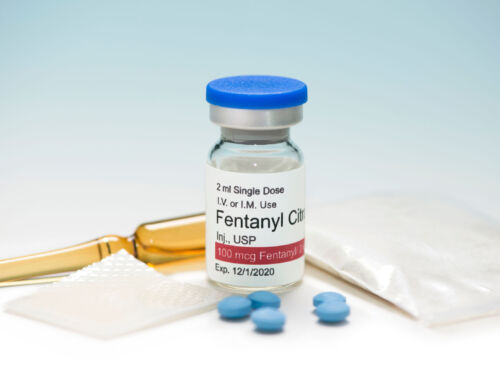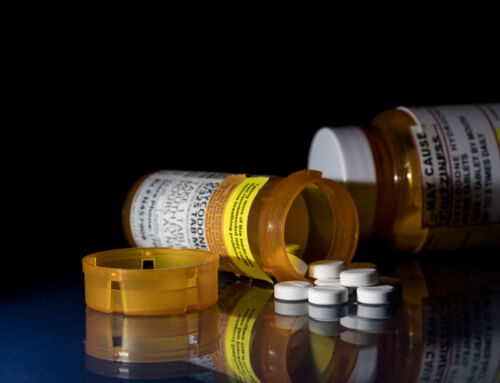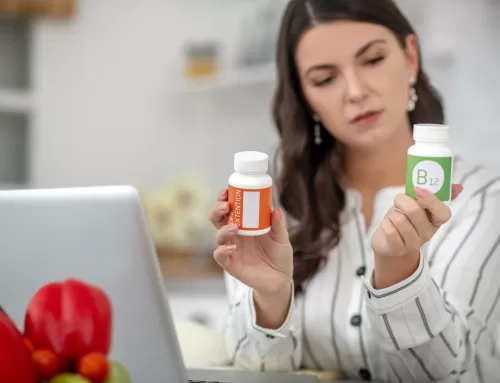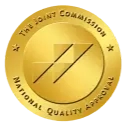
Overcoming an opioid addiction can feel like an impossible mountain to climb. When people try to quit cold turkey on their own, they’ll often experience the initial withdrawal stages which can cause them to return to their old habits. The good news is that there’s a safer, more systematic approach to beating an opioid addiction at Atlanta Detox Center.
You can rest easy knowing our medical detox facility has a wide range of opioid addiction rehab options from which our therapists can select to help you recover from your addiction illness to opioids. As a top opioid addiction treatment rehab, we are able to maintain a caring professional staff that includes some of the best opioid addiction treatment specialists in the industry. Find out more about our opioid addiction treatment program today by calling 470-450-2355 or filling out our online contact form.
What Are Opioids?
If you are not clear about what opioids are, our Atlanta Detox Center team thought it prudent to mention some of the more prominent opioids that are currently ravaging the country. The most common opioids come in the form of prescription painkillers. Among others in this category, you will find drugs like:
- Percocet
- OxyContin
- Vicodin
- Lortab
Prescription painkillers create special problems because they have a viable place in the medical community for treating moderate to severe pain issues. On the illicit drug side of the ledger, you will find opioids like heroin and the ever-dangerous fentanyl. If you are dealing with addiction symptoms on this side of the ledger, we cannot stress enough how important it is that you get yourself into treatment as soon as possible.
There’s more at risk here than you may realize. Opioids are effective for pain relief, but when a person takes them repeatedly over time, they have a high risk of causing physical dependence and tolerance, leading to addiction. The physical dependence on a drug means that a person’s brain structure and brain chemicals have altered to accommodate the drug. When the person stops using opioids, their body has to adapt to not having the drug in the body, which results in withdrawal symptoms. Some examples of opioids include:
What Are the Symptoms of Opioid Withdrawal?
Opioids, including prescription medications and heroin, can cause withdrawal symptoms several hours after the last dose. The severity of a person’s symptoms will depend on the dosage of opioids they were using and how suddenly they are coming off the drug. The type of opioid also affects the symptoms that people experience. Short-acting opioids, such as heroin, can produce more intense symptoms in a shorter time frame, whereas long-acting opioids, such as methadone, can take up to 30 hours from the last dose to cause any symptoms. Symptoms occur as a result of the body’s detoxification from the drug.
Common symptoms include:
- Aching muscles
- Stomach pain
- Anxiety or agitation
- Increased heart rate
- Fever and chills
- Nausea and vomiting
- Diarrhea
- Tremors
- Depression
Symptoms can be mild or severe and can depend on the person’s overall health, including any medical conditions, the extent and duration of drug use, environment, family history of addiction.

How Long Does Withdrawal Last?
Some withdrawal symptoms last longer than others. A timeline shows what a person should expect to experience in the week after they stop taking opioids.
This timeline includes:
6–12 HOURS OR 30 HOURS AFTER THE LAST DOSE
According to the American Addiction Centers, people who have been taking short-acting opioids will start experiencing symptoms 6–12 hours after their last dose. People who have been taking long-acting opioids may experience symptoms after 30 hours. These initial symptoms may include muscle aches, a runny nose, difficulty sleeping, excessive yawning, anxiety, increased heart rates, sweating, fever, and hypertension.
72 HOURS AFTER THE LAST DOSE
Symptoms will be at their most intense seventy-two hours after a final dose at an opioid addiction rehab center, and they can last for a week or more. Late withdrawal symptoms can include diarrhea, vomiting, nausea, cravings for opiate drugs, stomach pain, and depression. Psychological symptoms and cravings for opiate drugs can last longer than a week. A team of healthcare professionals can help people through these withdrawal symptoms. People who undergo an opiate detox under medical supervision typically experience symptoms for 5–7 days.
Now for the Good News
The good news is that there is a safe way to recover and avoid relapses moving forward. A heroin detox program backed by medical treatment, in a safe environment, supported by a caring community can help you get your life back on track. And with aftercare programs designed to mend relationships, rebuild finances, and feel whole again, it is possible to build a bright future. A full recovery is possible, and it’s never too soon to start an opioid detox program.
What Should I Look for in an Opioid Detox Program?
When choosing an opioid detox program, there are the critical things to look for, which include:
MEDICAL ASSISTANCE
Withdrawal can be uncomfortable and, in some cases, dangerous. And while nobody should self-administer a medical detox, they shouldn’t attempt beating the painful withdrawal stages without medical assistance. A successful opioid detox program should be supervised by dedicated professionals at every step, monitoring vital signs, administering medication as needed, and guiding you through the first steps to recovery.
POSITIVE COMMUNITY
Nobody wants to be surrounded by people who are constantly trying to “fix” them. You want to be around people who are just like you, who understand you and what you’re going through. One of the keys to a successful recovery is being part of a community of people who’ve been in your shoes and come out clean on the other side. These people can show you the exact steps you need to take to get back on track (and stay there).
A PERSONALIZED, LONG-TERM PLAN
The problem with one-size-fits-all detox programs is that each person is unique. People have different backgrounds, emotional hurdles, and financial situations. They also have different tolerances, triggers, and physical and psychological needs. According to The National Alliance on Mental Illness, roughly half of all people struggling with addiction also have unique mental circumstances that can affect the treatment methods and the duration they need for recovery.
When choosing an opioid program, you should look for one that takes the time to assess your circumstances. Make sure the program asks about and considers the substances you’ve been using, the dosage and duration of use, and your full medical history, and uses that information to create a personal plan designed only for you. With these three components, you can feel confident that your personal opioid detox program will get you where you’re going. You’ll know that you will get there comfortably with the proper medical treatment and with the support of people who genuinely care about you.
How to Know When Someone Needs Help with Addiction
Prescription drug addiction is more prevalent than you may think. According to The National Survey on Drug Use and Health (NSDUH), over 16 million Americans abuse prescription drugs.
If you’re not sure if you or a loved one is struggling with prescription drug addiction, here are some questions to consider:
- Do you find yourself upping your dosage just to produce the same effect it used to?
- Do you spend time contemplating how you can get more of the drug?
- Are you losing interest in your hobbies?
- Are you talking less with family and friends?
- Is your job performance or schoolwork suffering?
- Have you considered acquiring the drug through any other means than a prescription, such as through relatives or acquaintances?
- Do you put yourself in dangerous situations by taking the drug, for example, before getting behind the wheel?
If the answer to any of those questions is yes, there’s a strong chance you, or the person in question, are either addicted or on the verge of addiction.
Overcome Opioid Addiction at Atlanta Detox Center
If you’re struggling with opioid addiction, a full recovery is possible with professional opioid addiction rehab. At Atlanta Detox Center, our opioid addiction rehab, backed by a caring community and medical assistance, will give you the best chance of genuine, long-lasting recovery. Learn more about our opioid detox center in Atlanta by calling 470-450-2355 or completing our online contact form. Make today the day you choose to enhance your health and well-being in rehab for opioid addiction when you reach out to Atlanta Detox Center.







